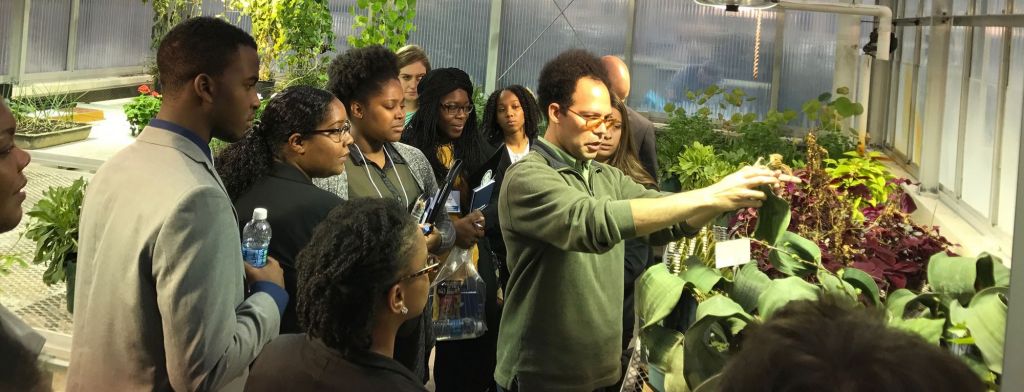
The MCIBS graduate program bridges numerous departments and colleges. It is designed to take advantage of the dynamic and diverse research community at Penn State. Students are encouraged to learn from a variety of disciplines and approaches while digging into their own research problems. They can choose a lab from any life science department.
Here are some ways the program encourages an integrative approach:
- Students take three courses in the first year that expose them to a variety of scientific approaches: MCIBS 590 Colloquium, MCIBS 503 Core Course, and MCIBS 592 Seminars are structured to introduce students to a wide range of topics, from model systems of plants, sea anemones, Drosophila, and mice, to seminars ranging from bioinformatics to cell biology to toxicology.
- Students choose a course with a quantitative foundation that is based on their interests; this could be population genetics, statistics, or bioinformatics.
- Students can choose to rotate in three labs that span more than 15 departments, ranging from Biochemistry and Molecular Biology to Biomedical Engineering to Entomology.
- Students continue to engage with other students in the program through retreats and other activities during their entire graduate career, and through peers, they learn about a wide variety of research questions and approaches.
- The MCIBS program is embedded in a vibrant research community, and students have access to scientists who focus on materials research, who use statistical approaches or physics frameworks to address biological problems, who design algorithms to extract information from data, and who can help think through whatever challenge arises in the course of investigating the thesis topic.